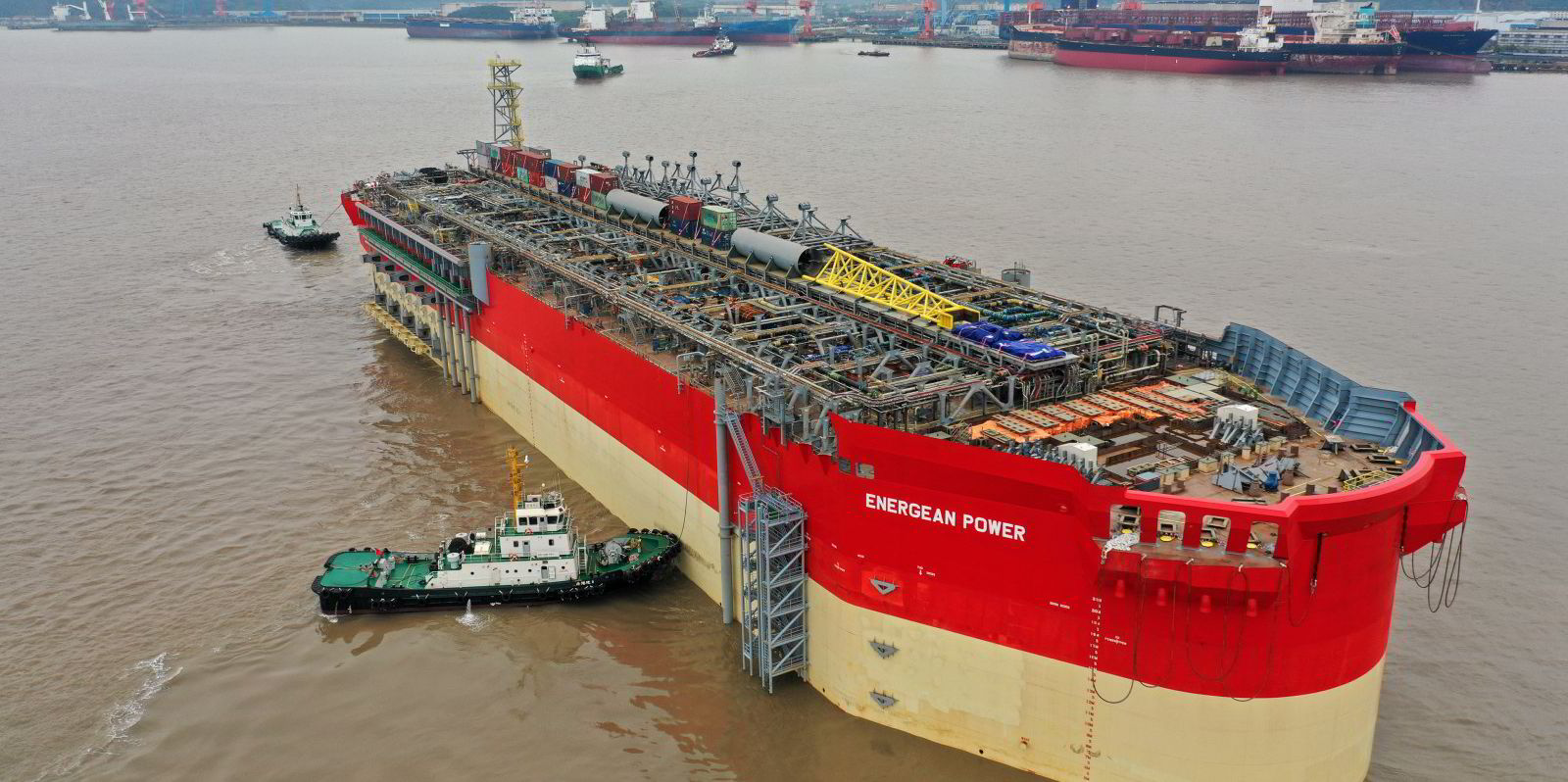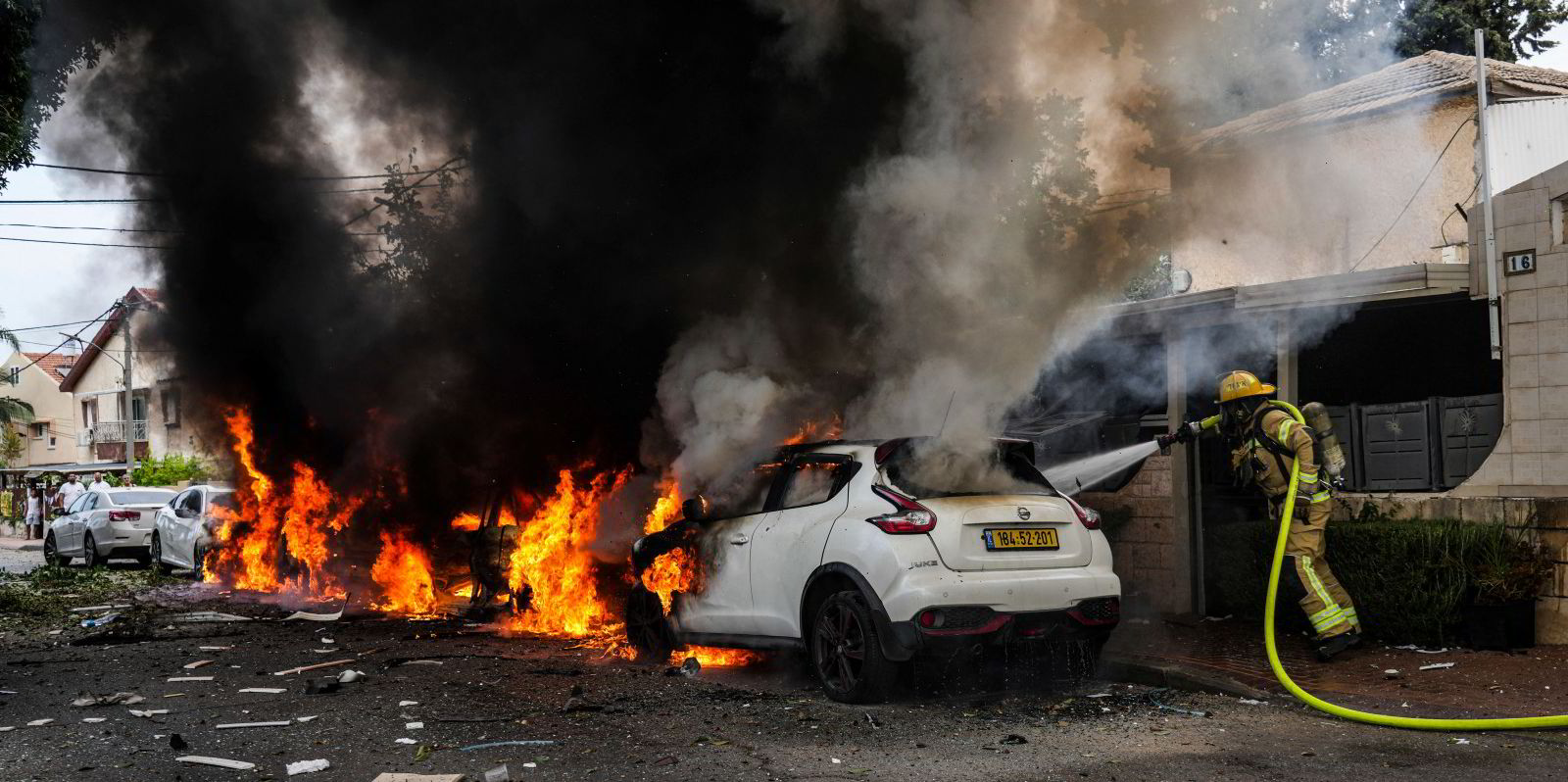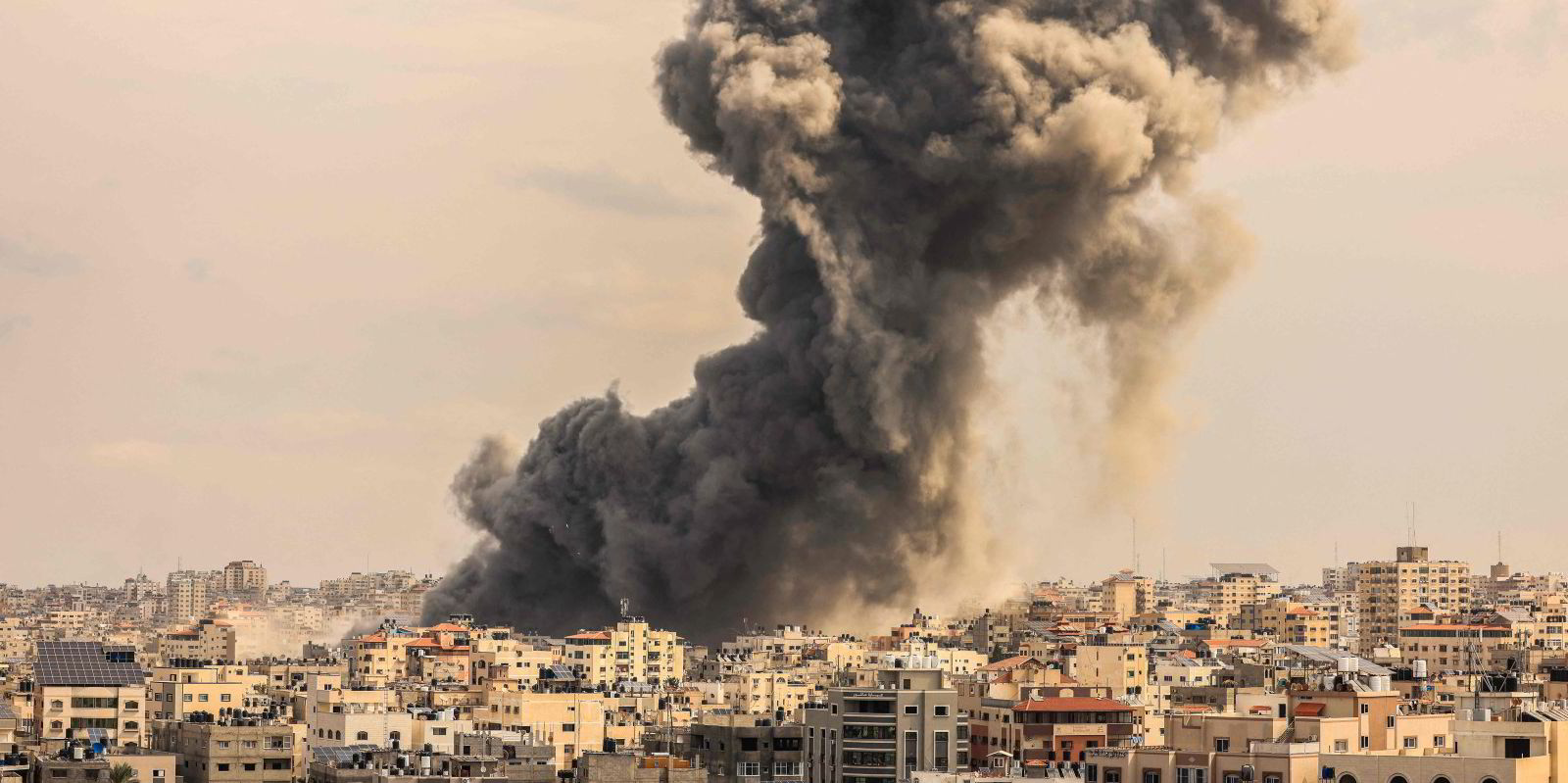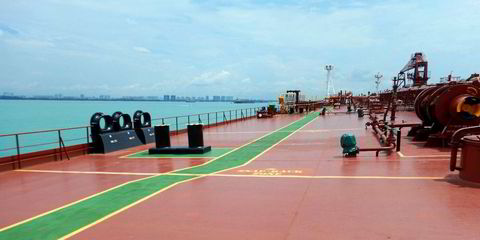War risk underwriters are calculating their exposure to the Israeli war as rates for ships trading to the region are poised to escalate.
The Israel coastline is already a designated high-risk area, which requires the payment of additional war risk premium.
Brokers are expecting a substantial increase in rates as a result of the current conflict.
The Israeli southern ports of Ashkelon and Ashdod are closest to the conflict and are regarded at the highest risk
Following the closure of Ashkelon, there are no longer any ships trading to the port, according to the latest AIS data.
The city of Ashkelon was hit by a missile attack from Palestinian militants yesterday.
Ships are continuing to trade to Ashdod, where there are around 20 ships within the port area.
The vessels range from panamax to feedermax container ships and bulk carriers from handysize to panamax, with the highest valuations around $20m.
The ships at Ashdod include the Navibulgar-managed, 41,600-dwt bulk carrier Rojen (built 2019), which was caught at the port of Chornomorsk at the outbreak of the Ukraine conflict, and was one of the first to make its way out under the Black Sea Grain Initiative.
The decision by cruise operators to avoid the port has reduced the risk accumulation for underwriters considerably.
Local protection and indemnity correspondent Harpaz P&I said the port of Ashdod has been put under emergency status. The Israeli Navy is currently controlling traffic and is requiring pre-notification of any hazardous materials on board.
Israel’s largest port Haifa continues to trade normally.
Highest value
The asset with the highest single insurance value is the floating production, storage and offloading vessel Energean Power.
Specialist publication Insurance Insider reported the insured war risk value at around $1bn and is led by insurer Beazley.
The Energean Power’s P&I cover is placed with NorthStandard.
The FPSO is installed 90 km offshore and it delivered the first gas from the Karish field in the third quarter of 2022.
Although far from the current conflict, it has been targeted in the past.
Shot down
In July 2022, Israel reportedly shot down three drones believed to have been launched towards the FPSO by Lebanon’s Iran-backed Hezbollah group prior to the project’s start-up.
The share price of London Stock Exchange-listed Energean Power fell after the outbreak of the conflict, but the company has stressed operations are continuing and it is closely monitoring the situation.
Output from the field, located close to the maritime border between Israel and Lebanon, became possible following a US-brokered deal reached in October between the two countries.
Karish production is said to have further boosted Israel’s gas industry, which has been a game-changer for a nation once reliant on imports.






